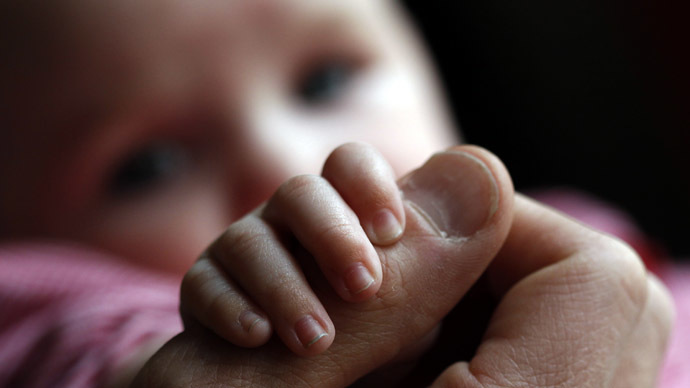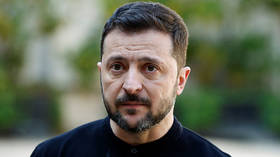3-parent babies: Britain first to legalize radical DNA treatment

Britain has become the first country to legalize the creation of in vitro fertilization (IVF) babies using three parents, which doctors say could prevent inherited genetic diseases.
The House of Lords voted on Tuesday for a change in the law to allow the treatment. The peers rejected an attempt to block the plan by 280 votes to 48.
The techniques are still in their research stages in laboratories in Britain and the United States. However, the first baby conceived using DNA from three different people may be born as early as 2016.
A spokesperson for the Department of Health said: “Parliament's decision will bring hope to hundreds of families affected by mitochondrial disease.
“We are proud to be the first country to allow these revolutionary techniques.
“For the first time ever, women who carry severe mitochondrial disease will have the opportunity to have healthy babies without the fear of passing on devastating genetic disorders.”
A three-parent child would have “nuclear” DNA determining individual traits such as facial features and personality from its two parents, plus a tiny amount of healthy mitochondrial DNA (mDNA) from a female donor.
READ MORE: 3-parent babies against EU law and
could ‘affect humanity’ – EU MEP’s
The mitochondria, extracted from a donor, would be implanted in an egg to replace any damaged or unhealthy mitochondria, which can cause inherited conditions such as heart problems, liver failure, brain disorders, blindness and muscular dystrophy.
However, critics warn the move will lead to the creation of “designer babies.”
Church leaders and pro-life groups warn the risks of the procedure are not yet fully known, and say the change was being pushed through too hastily. They also warn the legislation could trigger a “slippery slope” towards designer babies and eugenics.
The Center for Genetics and Society (CGS) called this decision “a historic mistake” and warned the technique “will turn children into biological experiments.”
“The techniques in question are relatively crude and will not in and of themselves create so-called ‘designer babies’, as that term is typically understood,” the group said.
“However they will result in children with DNA from three different people in every cell of their bodies, which will impact a large range of traits in unknowable ways, and introduce genetic changes that will be passed down to future generations through the female line.”
READ MORE: 2-father babies a possibility 'in two
years', research suggests
The chief medical officer for England, Dame Sally Davies, denied the legislation would give way to the creation of designer babies.
“This is about changing the battery packs, it's not about touching the chromosomes that make us what we are,” she said.
“The nucleus is sacrosanct and it is illegal to touch it.”
Prime Minister David Cameron, Labour leader Ed Miliband and Deputy Prime Minister Nick Clegg all used their free votes to support the decision.













